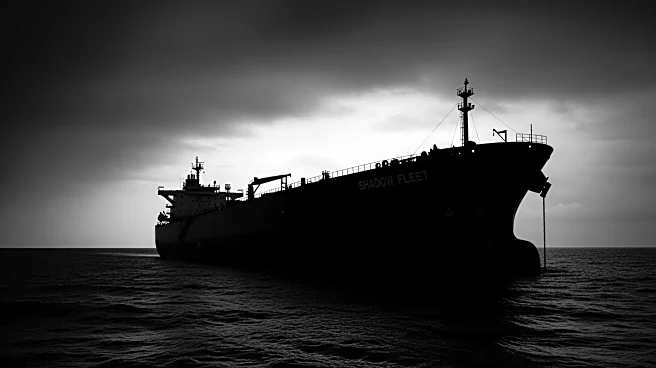What's Happening?
New satellite imagery has revealed Iran's 'shadow fleet' operating in the South China Sea, transferring oil to tankers potentially bound for China. The U.S. government has imposed sanctions on a network
of companies and ships involved in Iran's covert oil trade, targeting those facilitating the movement of Iranian liquefied petroleum gas and crude oil. The sanctions aim to disrupt Iran's ability to earn revenue from oil exports, which fund its proxy groups.
Why It's Important?
The U.S. sanctions on Iran's oil trade are part of a broader strategy to curb Iran's influence and economic capabilities. By targeting the shadow fleet, the U.S. seeks to limit Iran's ability to bypass international restrictions and sustain its economy. The sanctions could impact global oil markets, particularly affecting countries reliant on Iranian oil. The move also reflects ongoing geopolitical tensions between the U.S., Iran, and China, with potential implications for international diplomatic relations and trade dynamics.
What's Next?
Iran is expected to continue efforts to circumvent U.S. sanctions, potentially leading to further enforcement actions by the U.S. and its allies. The situation may prompt increased caution among buyers of Iranian oil, affecting market dynamics and pricing. Diplomatic negotiations and international pressure could play a role in shaping future developments in the region.
Beyond the Headlines
The sanctions highlight the complexities of international trade and the challenges of enforcing economic restrictions. They raise questions about the effectiveness of sanctions in achieving geopolitical objectives and the ethical considerations of targeting economic activities. The situation underscores the interconnectedness of global markets and the impact of political decisions on economic stability.










